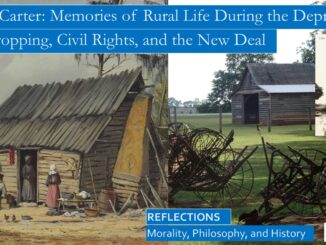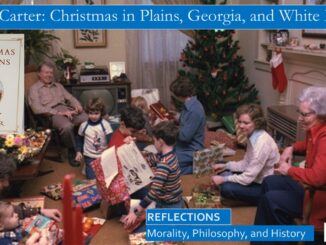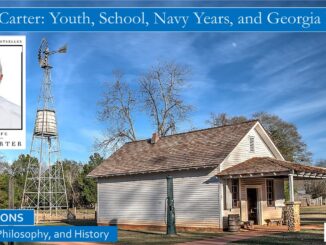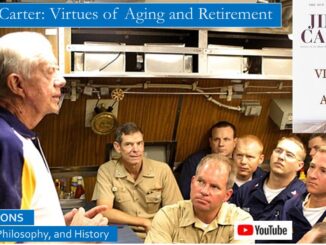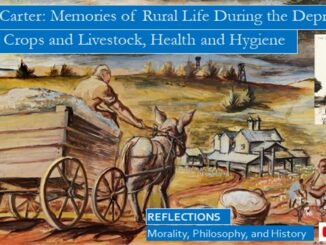
Jimmy Carter, Raising Crops and Livestock, and Health and Hygiene, in Rural Georgia During the Depression
Although both blacks and whites experienced health and hygiene challenges during the Depression, poor health was more prevalent among black laborers and sharecroppers. Jimmy Carter remembers: “The life expectancy of black men and women was less than fifty years.” “During most of the year, they ate only two meals a day, usually cornmeal, fatback, molasses, and perhaps sweet potatoes. The more industrious families also had small gardens that provided some seasonal corn, Irish potatoes, collards, turnips, and cabbage, with a few rows of peas and beans planted alongside the garden fence. The combination of constant and heavy work, inadequate diet, and excessive use of tobacco was devastating to the health of our poorer neighbors.” His mother encouraged her black neighbors to grow vegetables in their own gardens, and shared with them the vegetables from the Carter family garden. […]

